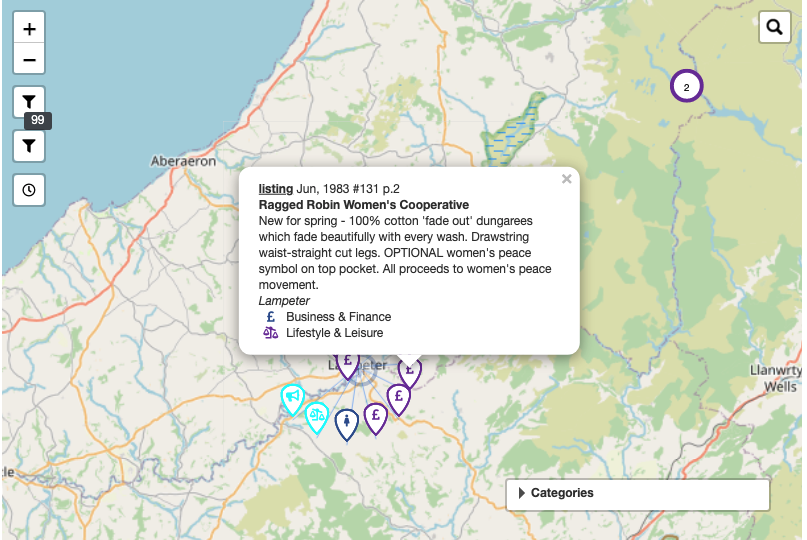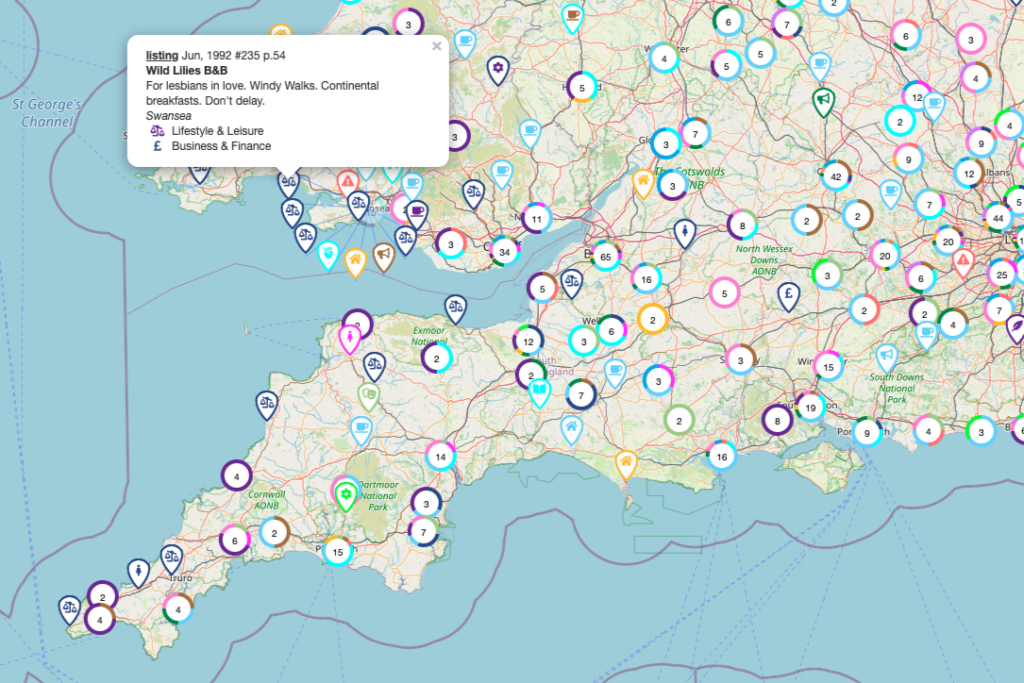Feminism is sustained by collective organising but women have often been driven to campaign by a sense of loneliness. This is my surprising finding while working with The Business of Women’s Words project (BOWW) and exploring the hidden history of feminist enterprise in the many independent magazines, journals, imprints, bookshops and other small creative businesses which the movement enabled – and which also enabled the movement, despite a general antipathy to capitalism.
What has emerged for me is the very personal way in which publishing also supported counter-publics in which feminists discovered each other and created alternative cultural networks. This is evident in Spare Rib, which strove to reach and connect women who would otherwise ‘remain isolated and unhappy’. The listings pages of Spare Rib, where consciousness-raising groups, events, jobs and lonely hearts were advertised, were an especially important forum for lonely feminists to meet and connect with other like-minded women.
Analysing these listings closely, along with correspondence sent to the busy letters pages of the magazine, reveals the many lonely feminists who make up a vital but understudied part of the Spare Rib community. The first digital map of the UK Women’s Liberation Movement, which I helped to create, draws heavily on the listings and letters to map the networks of feminist activity that took place across the UK in the 1970s and 80s. It dramatically reveals the reach of a movement famed for its decentralised activism, and shows how the women’s movement was a site of exchange in which economic trade – of feminist jewellery, healthcare or manual labour as much as books or music – was as crucial as the equally important trade in ideas and feelings and care.

The map also visualises the ‘networks of loneliness’ of the women’s movement – from an ‘isolated feminist’ located in the Scottish Highlands who wanted ‘to meet others in [the] area’ in 1979, to a ‘lonely lesbian’ who ‘seeks the same for friendship’ based in Norfolk in 1983. As one isolated British Asian reader put it, in a letter to Spare Rib: ‘I hope you will print my letter, as at home I have no voice and if I can’t find a voice through you, then where else can I turn?’ (SR 111 p. 22).
One of the most important resources Spare Rib provided for isolated feminists were its lonely hearts pages, which emerged as a service exclusively used by and for bisexual and lesbian women. The map also shows the many other projects that sprang up in response to a specifically lesbian or queer feminist loneliness, including lesbian dating services, helplines and B&Bs — something I reflected on in a British Library podcast on lesbian leisure and lonely hearts advertising from the 1980s to the 2020s.

The image you see here shows one of my favourite examples of a lesbian feminist business – the wonderful ‘Wild Lilies B&B’ based near Swansea ‘for lesbians in love. Windy walks. Continental breakfasts. Don’t delay’.
We have also been fascinated by the particular forms of loneliness experienced by rural women – Lucy Delap and I reflect on this here. But lonely feminists were not confined to more provincial parts of the UK; in London in 1979 we can find a plaintive ad asking ‘Are there any other lonely feminists at home with small children within reach of Pimlico?’ The big cities, of course (more than half of Londoners find that the capital is a lonely place to live, according to a YouGov survey from 2019), could generate a distinct and sometimes even more oppressive form of loneliness than that produced by geographical isolation.
To end on a more hopeful note: Spare Rib, in its early days, published listings for ‘Isolated readers seeking WLM groups’. That section swiftly evolved into the ‘Local Groups’ section. The shift in emphasis, from isolation to collectivity, indicates a movement growing in confidence, power and numbers and also demonstrates how loneliness can be a galvanising force for the formation of feminist collectives, groups and networks.
The map is now permanently hosted on the British Library’s free educational website as part of its rich Spare Rib resource, and you can explore it to discover all the enterprise, activism, groups and networks that enabled feminists to connect to each other through media and through trade.


Leave a Reply